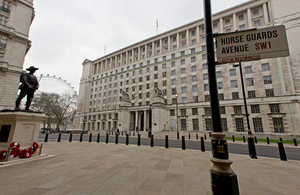We have made enormous progress this year in tackling the pandemic across Britain. That progress has been hard won and it is important that we do not risk undermining it now. Yet we are also a nation with ties across the globe.
In 2019, UK residents took over 93 million trips abroad, for business, leisure and to visit friends and family. International travel is vital. It connects families who have been kept apart, boosts businesses and underpins the UK economy. It is absolutely essential that any steps we take now, lay the groundwork for a sustainable return to travel. That is why on Friday 7 May (2021), I announced the first steps towards unlocking international travel.
I have confirmed that, from 17 May, the ‘Stay in the UK’ regulation will cease and international travel will be allowed to restart, governed by a new traffic light system. The system will allow the public to understand COVID requirements when travelling to England. Health measures at the border will vary depending on whether travelling from a green, amber or red country. You can see the full list of countries in each category on GOV.UK.
The traffic light system
As the virus is still spreading in many parts of the world, people should not be travelling to amber or red countries.
Given the need for caution, the green list will initially be modest with only the following 12 countries and territories on the initial list when international travel resumes on 17 May:
- Portugal (including the Azores and Madeira)
- Israel and Jerusalem
- Gibraltar
- Iceland
- Singapore
- Australia
- Brunei Darussalam
- Falkland Islands
- Faroe Islands
- New Zealand
- Saint Helena, Ascension and Tristan da Cunha
- South Georgia and the South Sandwich Islands
Countries on the green list pose the lowest risk, therefore passengers who have only visited or transited through a green list country will not be required to quarantine on arrival in England. They will be required to fill in the passenger locator form, provide a valid notification of a negative test result prior to travel and take a sequencing test on day 2 after arrival.
The Maldives, Nepal and Turkey will be added to the red list from 4am on 12 May, a sign of our ongoing vigilance in protecting against the virus and from the importation of variants. International visitors who have visited or transited through any red list country in the previous 10 days will be refused entry into England. Only British and Irish citizens, or those with residence rights in the UK, will be allowed to enter and they must stay in a government approved quarantine facility for 10 days.
All other countries will remain on the amber list. Passengers who have visited or transited through an amber country will be required to fill in the passenger locator form, provide a valid notification of a negative test result prior to travel, quarantine at home for 10 days, and take a test on day 2 and day 8 after arrival. Passengers will also have the option to opt into Test to Release at day 5.
While the number of countries on the green list is initially low, I anticipate it will grow over time as the situation improves globally, meaning further opportunities for international travel will open up.
The risk posed by individual countries will be continuously monitored and the green, amber and red lists will be updated every 3 weeks. The Joint Biosecurity Centre (JBC) will produce risk assessments of countries and territories. Decisions will be taken by ministers, who take into account the JBC risk assessments, alongside wider public health factors. Key factors in the JBC risk assessment of each country include:
- genomic surveillance capability
- COVID-19 transmission risk
- variant of concern transmission risk
A summary of the JBC methodology has been published on GOV.UK, alongside key data that supports ministers’ decisions.
If the situation in a country changes dramatically, we will not hesitate to act swiftly and decisively to protect the health of the UK public and our progress on vaccination.
Demonstrating COVID-19 vaccination status
From 17 May, people in England who have had the vaccine will be able to demonstrate their COVID-19 vaccination status for outbound travel using the NHS app or letter. In due course, the app will allow people to show evidence of negative tests as they travel out of the country.
The government is working with the devolved administrations to ensure this facility is available to everyone across the UK.
Messages to passengers
Given the virus is still spreading in many parts of the world, the public are recommended against travel to amber and red countries, and instead should only travel to countries on the green list.
Reopening international travel while maintaining checks of health measures for every passenger at the border means queues are inevitable. We understand that queues are frustrating but undertaking proper checks is the right thing to do to reduce the chances of a new variant of the virus entering the country.
We have updated the guidance on GOV.UK setting out the requirements of all passengers. We will continue to promote messages on how to prepare for travel via all our usual channels. You should check the GOV.UK travel abroad page to help plan your journeys.
Future reviews
The traffic light system will be reviewed through a series of checkpoints in June, July and October, taking into account the latest domestic and international data.
The government is committed to giving people the freedom to travel with confidence and supporting the wider travel industry.
